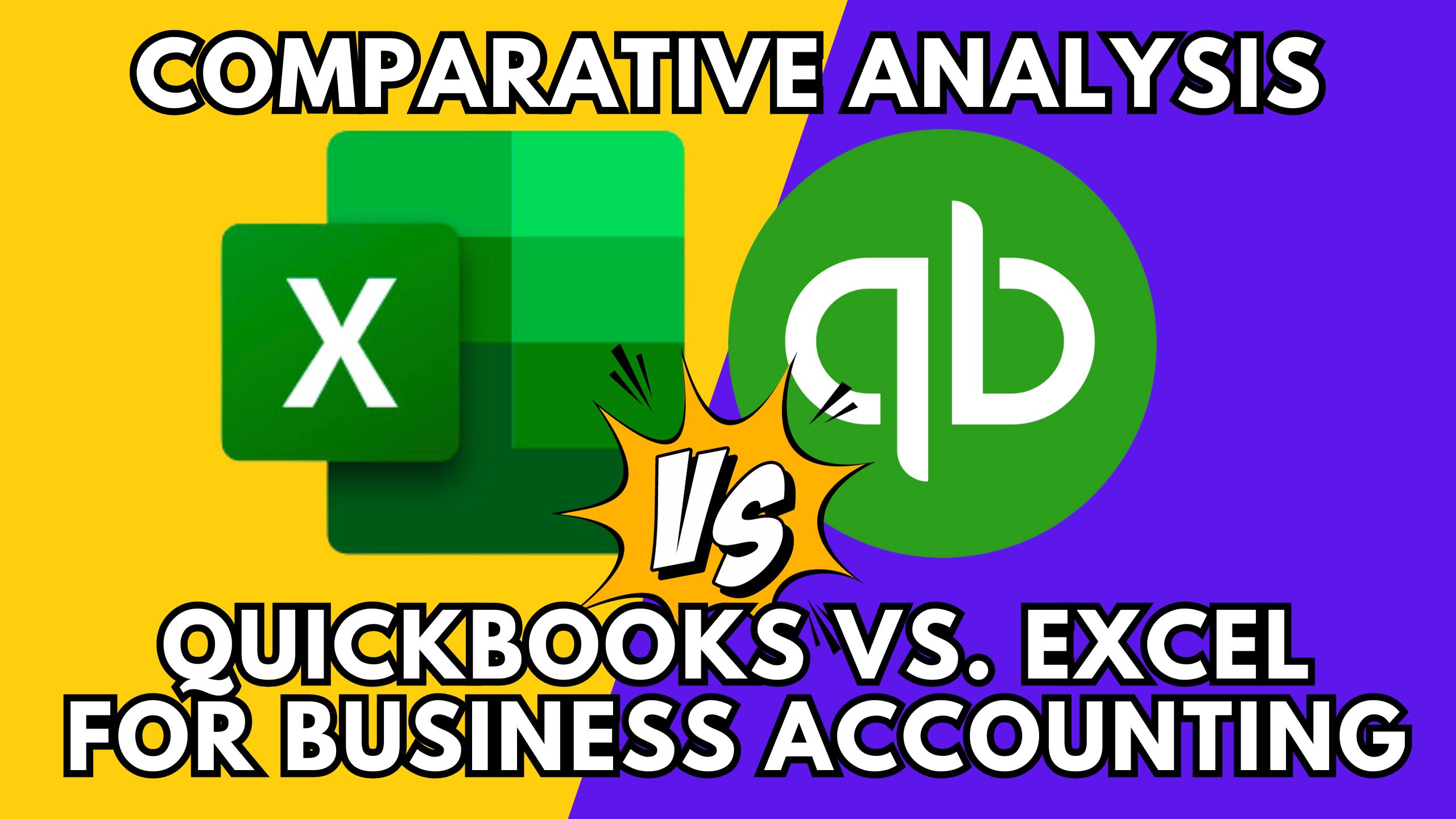Comparative Analysis: QuickBooks vs. Excel for Business Accounting
- Data as a Service (DaaS) Software Marketing & Analytics


Comparative Analysis: QuickBooks vs. Excel for Business Accounting
Effective accounting is the backbone of a successful business, and choosing the right tool is paramount. In this in-depth comparative analysis, we explore the strengths and weaknesses of QuickBooks and Excel for business accounting, shedding light on which solution might best suit your financial needs.
QuickBooks: Streamlining Financial Management
QuickBooks stands as a robust accounting software designed to simplify financial tasks for businesses of all sizes. With features like automated bookkeeping, expense tracking, and invoicing, QuickBooks offers a comprehensive solution for efficient financial management.
Excel: Flexibility and Customization
Microsoft Excel has long been a staple for businesses, providing a versatile platform for creating customized financial spreadsheets. Its flexibility allows businesses to tailor their accounting processes to their specific needs, making it an adaptable choice for those who prefer a more hands-on approach.
User-Friendliness and Learning Curve
QuickBooks is renowned for its user-friendly interface, making it accessible to users with varying levels of accounting expertise. On the other hand, Excel’s learning curve can be steeper, requiring a solid understanding of formulas and functions for efficient use.
Automation and Time-Saving Features
QuickBooks takes the lead in automation, offering features like bank reconciliation, automatic categorization of transactions, and financial reporting. Excel, while powerful, requires manual input and lacks the seamless automation found in specialized accounting software.
Scalability and Collaboration
As businesses grow, QuickBooks adapts, offering scalable plans and collaborative features. Excel, while suitable for smaller operations, may face limitations in handling complex financial scenarios and collaborative efforts as businesses expand.
Recommended SaaS Products for Accounting:
- FreshBooks: FreshBooks is a user-friendly accounting software designed for small businesses. It simplifies invoicing, expense tracking, and time management.
- Zoho Books: Zoho Books offers a comprehensive suite of accounting tools, including invoicing, expense tracking, and inventory management. It’s scalable to accommodate businesses of various sizes.
- Xero: Xero is a cloud-based accounting solution known for its ease of use and collaboration features. It streamlines invoicing, bank reconciliation, and financial reporting.
- Wave: Wave provides free accounting software with features like invoicing, accounting, and receipt scanning. It’s a great option for small businesses and freelancers.
- Sage Intacct: Sage Intacct is a robust accounting solution suitable for midsize and enterprise-level businesses. It offers advanced features such as multi-entity management and financial reporting.
Conclusion
In the realm of business accounting, the choice between QuickBooks and Excel ultimately depends on the specific needs and preferences of the user. QuickBooks excels in automated financial management, while Excel offers flexibility for those who prefer hands-on control. Whether you prioritize user-friendliness or customization, understanding the nuances of each tool is crucial for effective financial management.
Optimize Your Accounting with Subscribed.fyi!
Ready to streamline your SaaS stack? At Subscribed.fyi, we empower freelancers, agencies, and teams to manage their SaaS tools effortlessly. Sign up for free today and unlock exclusive deals, saving over $100,000 per year on 100+ SaaS tools. Manage all your subscriptions in one place and make informed decisions with Subscribed.fyi.








